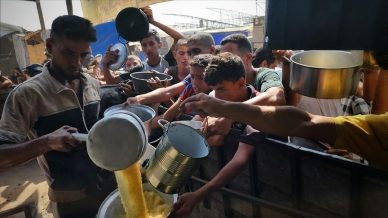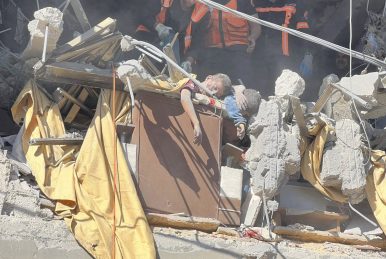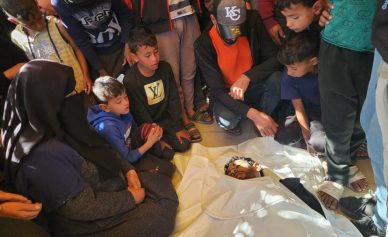GENEVA, (PIC)
The World Health Organization (WHO) has warned that the destruction of health infrastructure and environmental conditions in the Gaza Strip “creates an ideal environment for the spread of diseases.”
WHO’s spokesman, Christian Lindmeier, stressed that “the destruction of the health system in Gaza, the insecurity, the blocked access and the constant displacement of the population, the lack of medical supplies, poor water quality and poor sanitation, have all led to low routine vaccination rates and an increased risk of diseases that can be prevented with vaccines, Including polio.”
On Friday evening, Lindmeier warned that these conditions pose a danger to children and create the environment for the spread of epidemics such as polio.
He explained that before the war on Gaza, polio vaccination rates were perfect, and that “polio vaccination coverage, which is made primarily through routine vaccination, was estimated at 89% in 2023, according to the latest routine vaccination estimates for WHO and UNICEF.
In 2022, routine vaccination coverage in the occupied Palestinian territory was 95 percent and more, he added.
The Ministry of Health in Gaza announced a few days ago that the tests conducted in cooperation with the UNICEF “showed the presence of the polio virus” in the Strip which has been under a genocide war since October 7 last year.
Lindmeier said, at a press conference for the United Nations agencies in Geneva, that on July 16, the World Children’s Laboratory Network isolated the polio virus derived from the type 2 in six sewage samples collected on June 23 in environmental monitoring sites in Khan Yunis and Deir Al-Balah in Gaza.
“It is important to note that the virus has been isolated from the environment only at this time, and no related paralysis has been revealed,” He added.
Lindmeier stated that as part of the response efforts, WHO works in the occupied Palestinian territory with the Palestinian Ministry of Health, UNICEF, UNRWA and the partners to conduct a risk assessment to determine the scope of the spread of the polio virus and the appropriate responses needed to stop any other spread, including fast vaccination campaigns.
He pointed to the reality of the health system now in Gaza, where only 16 hospitals out of 36 hospitals work in part, and 45 out of 105 primary health care facilities.
The UN agencies have launched campaigns for four decades to eliminate polio, which is often spread through sewage and contaminated water, but has witnessed a recovery in recent years in Afghanistan and Pakistan and some isolated cases in Nigeria.
The Municipality of Deir Al-Balah, in central Gaza, recently announced the closure of wastewater treatment stations due to a lack of fuel.
The municipality warned in a previous statement that the roads will be overwhelmed by sewage and that 700,000 civilians, most of them displaced, will be at risk of developing diseases transmitted through wastewater.
The UN estimates that about 70 percent of the water and sewage stations in Gaza were destroyed or damaged by the Israeli intense bombardment.
The UN evaluation of two camps in Deir Al-Balah in early June concluded that the average daily personal consumption of water including drinking, washing, and cooking water is less than two liters, which is much lower than the recommended amount (15 liters per day).
The WHO announced the spread of hepatitis A in many cities of the Gaza Strip, which until early June, led to 81,700 cases of jaundice, which is one of the main symptoms.














